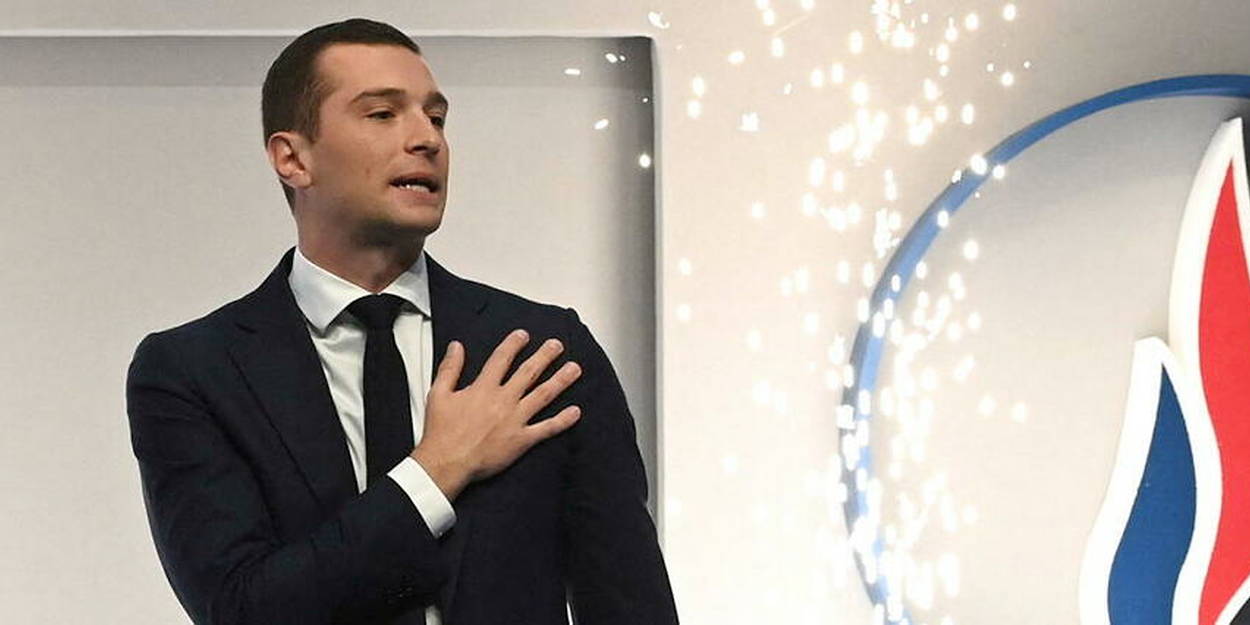French Elections 2027: Jordan Bardella's Path To Power

Table of Contents
Bardella's Rise Through the Ranks of the Rassemblement National (RN):
From Youth Activist to Party Leader:
Jordan Bardella's journey to the presidency of the Rassemblement National (RN) is a remarkable one. His ascent showcases a calculated strategy and an ability to connect with a younger generation within the party. His early involvement in student politics provided a springboard for his later ambitions.
- Early Involvement: Bardella's early engagement with the RN, even before the party's name change from Front National, solidified his commitment to the movement's ideology and provided invaluable experience in political organization.
- European Parliament Election: His election to the European Parliament marked a significant turning point, catapulting him onto the national stage and providing a platform to further refine his political messaging.
- Shaping the RN's Message: Bardella has played a key role in shaping the RN's communication strategy, focusing on a more modern and appealing image.
Shifting the RN's Image:
Bardella's leadership is characterized by a concerted effort to modernize the RN's image, distancing it from its more controversial past, and appealing to a broader electorate. This involves a deliberate shift in emphasis.
- Economic Focus: Instead of solely focusing on immigration, Bardella highlights economic concerns such as rising living costs and the struggles of the working class. This strategy attempts to broaden the party's appeal beyond its traditional base.
- National Identity, Not Xenophobia: While maintaining a strong stance on national identity, Bardella’s rhetoric avoids the overtly xenophobic language that characterized previous RN leaders. This subtle shift aims to attract voters who are concerned about national sovereignty but repelled by extreme nationalism.
- Reaching Beyond the Core Vote: His efforts to appeal to a wider electorate are evident in his public appearances and media engagements. He seeks to present a more moderate, yet firm, image to attract disillusioned voters from across the political spectrum.
Key Policy Positions and their Electoral Appeal:
Economic Policies:
Bardella's economic platform is a key element of his appeal. While details may evolve, his proposals generally focus on:
- Taxation: Reducing taxes on businesses and individuals to stimulate economic growth and enhance purchasing power. This resonates with segments of the population facing economic hardship.
- Welfare Reform: Reforming the French welfare system to make it more efficient and sustainable, while preserving essential social safety nets. This addresses concerns about the country’s fiscal health and promises responsible spending.
- EU Membership: While advocating for a stronger national voice within the European Union, he has steered clear of calls for outright withdrawal, a position likely to appeal to a broader range of voters.
Immigration and Security:
Bardella maintains a firm stance on immigration and security, a key element of the RN platform:
- Border Control: He advocates for stricter border controls and increased efforts to combat illegal immigration, addressing a major concern for many French voters.
- National Security: He emphasizes strengthening national security measures to combat terrorism and organized crime, appealing to voters prioritizing safety and order.
- Assimilation: He advocates for strong assimilation policies for immigrants, aiming to integrate new arrivals into French society.
Social and Cultural Policies:
Bardella's views on social and cultural issues reflect a blend of traditional values and modern concerns:
- Secularism (Laïcité): He maintains a strong commitment to the principle of secularism in France, a significant issue for many voters.
- Education: He advocates for reforming the education system to better prepare students for the challenges of the 21st-century economy.
- Family Values: He often expresses support for traditional family values and policies aimed at supporting families.
Challenges and Obstacles on the Path to the Presidency:
Overcoming the RN's Legacy:
The RN's past, particularly its association with controversial figures and policies, poses a significant challenge for Bardella:
- Historical Baggage: The party's history, including accusations of racism and xenophobia, remains a hurdle to overcome.
- Image Rehabilitation: Bardella's success hinges on his ability to effectively distance himself from this legacy while retaining the support of the party's core constituency.
- Building Trust: Rebuilding trust with segments of the population who have historically distrusted the RN is essential.
Competition from Other Right-Wing Candidates:
Bardella faces significant competition from other right-wing candidates:
- Potential Rivals: Depending on the political landscape, he could face competition from figures within Les Républicains or other right-wing movements.
- Differentiation: He needs to establish a clear distinction from these rivals to attract voters seeking a right-wing alternative.
- Strategic Alliances: The potential for alliances or agreements with other right-wing parties could be crucial in the electoral process.
Appealing to a Broader Electorate:
Expanding his appeal beyond the traditional RN base is critical for Bardella's presidential ambitions:
- Target Demographics: He needs to reach out to younger voters, urban populations, and those who have traditionally supported other parties.
- Messaging Strategy: Crafting messages that resonate with these diverse groups is essential for building a broader coalition of support.
- Targeted Outreach: Engaging in targeted outreach programs to specific demographics and regions is crucial for electoral success.
Conclusion:
Jordan Bardella's path to the French presidency in 2027 is undoubtedly a challenging but potentially viable one. His ability to successfully modernize the RN's image, while maintaining the loyalty of its core voters, will be crucial. The success of his economic and social policies, as well as his ability to navigate the complex political landscape and overcome the legacy of the party, will ultimately determine his chances of victory. Staying informed about Jordan Bardella’s political strategies and policy positions is essential for understanding the future of French politics. Continue following the news and analysis surrounding Jordan Bardella to stay updated on his progress in the lead-up to the 2027 French elections.

Featured Posts
-
 Jannik Sinner Retorna A Hamburgo Apos Suspensao Por Doping
May 19, 2025
Jannik Sinner Retorna A Hamburgo Apos Suspensao Por Doping
May 19, 2025 -
 Live Blog Ufc Fight Night Gilbert Burns Vs Michael Morales
May 19, 2025
Live Blog Ufc Fight Night Gilbert Burns Vs Michael Morales
May 19, 2025 -
 Uber Pet Policy Mumbai Everything You Need To Know
May 19, 2025
Uber Pet Policy Mumbai Everything You Need To Know
May 19, 2025 -
 Gazze Deki Muelteci Krizi Filistinlilerin Yasam Muecadelesi
May 19, 2025
Gazze Deki Muelteci Krizi Filistinlilerin Yasam Muecadelesi
May 19, 2025 -
 Devastating Tornadoes Claim 25 Lives In Central Us
May 19, 2025
Devastating Tornadoes Claim 25 Lives In Central Us
May 19, 2025
